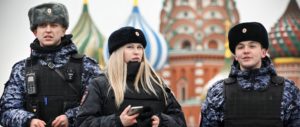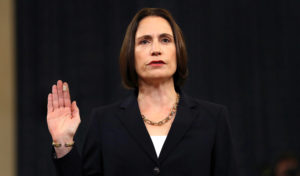Like the dozens of sanctioned superyachts lying abandoned in European harbours, the empty mansions gathering dust in Chelsea stand as mementoes to the West’s love affair with the Russian super-rich. This romance has soured with Western sanctions, which are based on a wildly naïve assumption: that Russia still has a powerful business elite that can influence President Putin and even change his handling of the war. The truth is, there are no powerful Russian oligarchs left.
The term “oligarchy” perfectly characterises Boris Yeltsin’s presidency in the Nineties, during which a small number of extremely wealthy men yielded massive influence. These men acquired key state assets, including major parts of the energy, telecommunications, and precious metal sectors, at a fraction of their real value after the Soviet Union fell. In return, these “businessmen” backed the ailing president and helped to ensure his re-election in 1996.
When Putin came to power, he set about dismantling this oligarchy and removing any threat business elites posed to his own political leadership. The deal was that oligarchs could keep their money if they stayed out of politics. Those that didn’t, risked everything — their wealth, their freedom, and their lives. Mikhail Khodorkovsky, once Russia’s richest man, spent 10 years in prison on tax charges after setting up a political organisation — Open Russia — to “build and strengthen civil society”. Rather than risk a similar fate, most of the other oligarchs stayed away from politics.
Of course, Putin reduced the Russian people’s political power as well as that of the oligarchs. But people were willing to accept a social contract of economic stability and growth in return for staying out of politics because they were so traumatised by the economic conditions and exploitations to which the oligarchs (and Western advisors and businessmen) contributed so substantially during the transition to capitalism and depredations of the wild Nineties.
In an oligarchy, great wealth guarantees political influence, but in Putin’s Russia, the opposite is true: business elites must suffer the tyranny of officials. State corruption winds its way through all Russian businesses, which require krysha — or protection — from powerful bureaucrats to ensure their company is not expropriated, subject to a hostile takeover, or slandered around the world via “black PR”. The bureaucrats can then exploit their powers of patronage to arrange business opportunities for their friends or family. No wonder so many young Russian professionals want to become bureaucrats, not businessmen.
In this system, wealthy Russians depend on political approval, not vice versa, which is where the UK’s misunderstanding lies. The business elites have close to zero political influence.
There are two types of super-rich Russians: both powerless to change the course of the war. The first are Putin’s men, for example, Igor Sechin, who derive their wealth exclusively from their proximity to Putin. If they were to abandon or criticise Putin, they would lose everything. The second group is made up of tamed erstwhile oligarchs, many of whom emit coded signals that they do not agree with the war. The sanctioned businessman Mikhail Fridman — who lives in London — is one such. He called the invasion of Ukraine a tragedy, but stopped short at outright condemnation of the war.
In some ways, the UK is to blame for the Russian elites’ lack of leverage. For decades, well-connected Russians kept their money and families safe in the UK, while maintaining their high positions in Russia. British accountants helped to stash their dubious incomes, lawyers settled their divorces and prosecuted libel trials, consultants lobbied politicians for their business associates’ interests, estate agents procured their mansions, private schools educated their children, and museums laundered their reputations.
Given the Russian super-rich had rights and the means to assert them in the UK, they never felt the need to promote — or defend — the rule of law at home. This double life often worked in their favour: if they wanted to bring down an enemy, they could hire a corrupt judge in Russia to ensure an unfair hearing. But when they needed real justice, they could fly to London.
This “Get out of Russia Free” card couldn’t last forever. In allowing Russians to live the high life away from home, the UK emboldened Putinism in its current form. With the UK offering a safe haven, rich Russians never felt the need to build or maintain strong legal institutions after the fall of the Soviet Union. As a result, there is now no realistic channel of non-centralised power, such as a strong judiciary or small and medium business constituency, that the business elites could use to influence the Kremlin — presuming they even wanted to.
Russia might have been better off following the lead of Poland or Ukraine. In Poland, which also underwent neoliberal “shock therapy” market reforms during the Nineties, measures were taken to guard against oligarchy and build up the SME sector. The Poles built millions of new businesses and gave a group of funds stakes in privatised state firms to prevent the asset-stripping characteristic of Russian oligarchs. Meanwhile, in Ukraine, the rivalries between different oligarchs created obstacles for any autocrats, allowing citizens more political freedom. In many ways, Russia has the worst of both worlds: the destructive economic legacy of oligarchy without any of the elite infighting.
None of this is to say that the UK shouldn’t seize the assets of Kremlin-linked officials and businessmen. It’s just that the purpose of doing so should not be to encourage business elites to abandon or persuade or topple Putin — but to stop Russian money from corrupting our national interests and security.
Ironically, sanctions on oligarchs have given the UK some of its best PR in Russia for decades. Ordinary Russians hate the business elite and have celebrated the West’s sanctions on them. On Russian Telegram channels, announcements of new sanctions on bankers, Putin’s mistress Alina Kabaeva, and other wealthy individuals, are greeted with thousands of likes and jokey comments celebrating the UK: “Thanks London”, “More please!”, and “London is doing us a favour”. As Putin gloated during his State of the Nation speech last month: the West has seized rich Russians’ assets because it views them as “second-class strangers”, but “not a single ordinary citizen in our country feels sorry” for them.
When it comes to sanctions, the British establishment must be careful not to project its outdated historical conceptions onto Russia. The UK is no longer dealing with the influential oligarchs of the Nineties — but with powerless present-day business elites. And while the Kremlin could no doubt use Western business elites to influence our governments, the same is no longer true in reverse. The power of the Russian business elites is a phantom. The oligarchs are long dead. And we helped kill them.
Disclaimer
Some of the posts we share are controversial and we do not necessarily agree with them in the whole extend. Sometimes we agree with the content or part of it but we do not agree with the narration or language. Nevertheless we find them somehow interesting, valuable and/or informative or we share them, because we strongly believe in freedom of speech, free press and journalism. We strongly encourage you to have a critical approach to all the content, do your own research and analysis to build your own opinion.
We would be glad to have your feedback.
Source: UnHerd Read the original article here: https://unherd.com/




